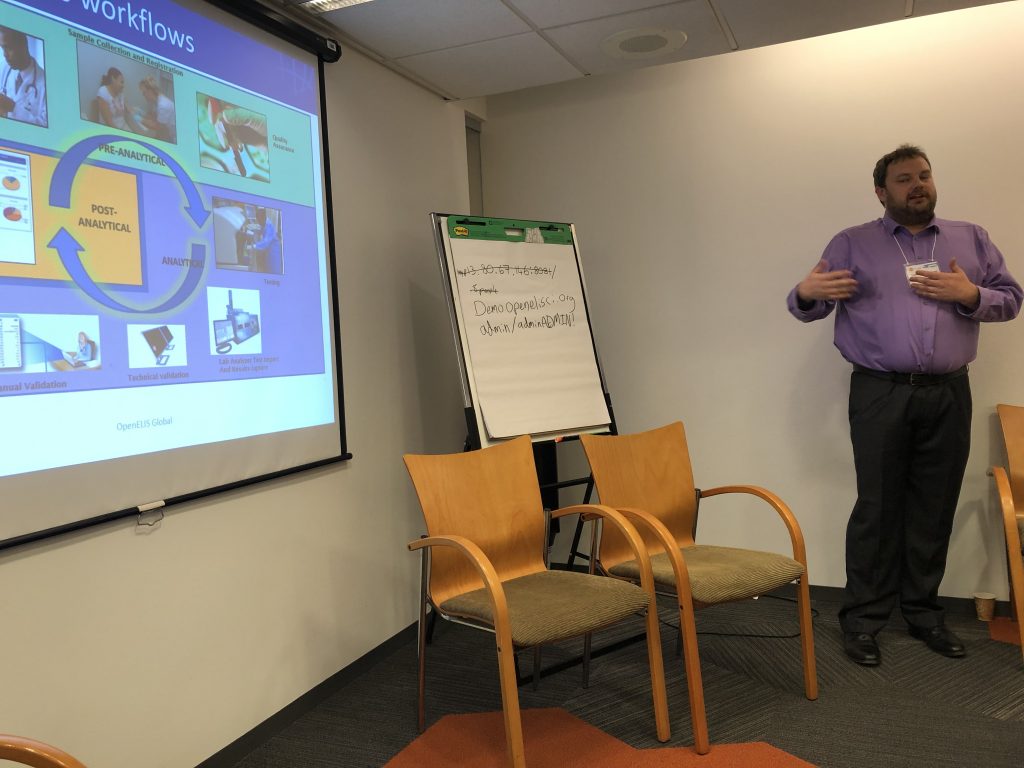 In winter 2019, the International Training and Education Center for Health (I-TECH) launched a new unit: the Digital Initiatives Group at I-TECH (DIGI). The DIGI team builds upon 15 years of experience at I-TECH designing, developing, implementing, and evaluating health information systems (HIS) around the world.
In winter 2019, the International Training and Education Center for Health (I-TECH) launched a new unit: the Digital Initiatives Group at I-TECH (DIGI). The DIGI team builds upon 15 years of experience at I-TECH designing, developing, implementing, and evaluating health information systems (HIS) around the world.
The group — co-led by Dr. Nancy Puttkammer, Assistant Professor in the Department of Global Health, and Jan Flowers, Clinical Faculty and Director of Global Health Informatics in the Clinical Research Group (CRIG) — provides services to help programs scope and build technical solutions to manage program or clinical data.
“The shared faculty lead role helps the group leverage diverse resources from departments across the university,” said Joanna Diallo, DIGI Managing Director.
By promoting open-source “global goods” that are supported by implementer communities, DIGI helps partners such as Ministries of Health to be able to own and continue to develop long-term solutions.
In April, Flowers received a Digital Square award to lead an online community of practice on open-source lab information systems like OpenELIS, and Dr. Puttkammer received a Digital Square award to design and test practical and generalizable solutions for interoperability between OpenELIS and two other leading open source tools: OpenMRS and OpenLMIS.
DIGI partners with global communities to develop and enhance digital tools and provide technical assistance for effective implementation and sustainability. The team works closely with on-the-ground experts and stakeholders to guide and facilitate governance, capacity building, and continuous quality improvement using a maturity model lens.
DIGI works in the following technical areas:
- Software Design & Development
- Health Data Exchange Standards
- Health Systems Architecture
- Information Security
- Evidence-Based Evaluation and Implementation
- Digital Health Workforce Development
“With investment from the I-TECH center to launch DIGI, we have been able to approach the work in a new way that is flexible and responsive and promotes cross project sharing,” explained Dr. Puttkammer. “We hope this will continue to strengthen the department’s standing as a leader in digital health.”



